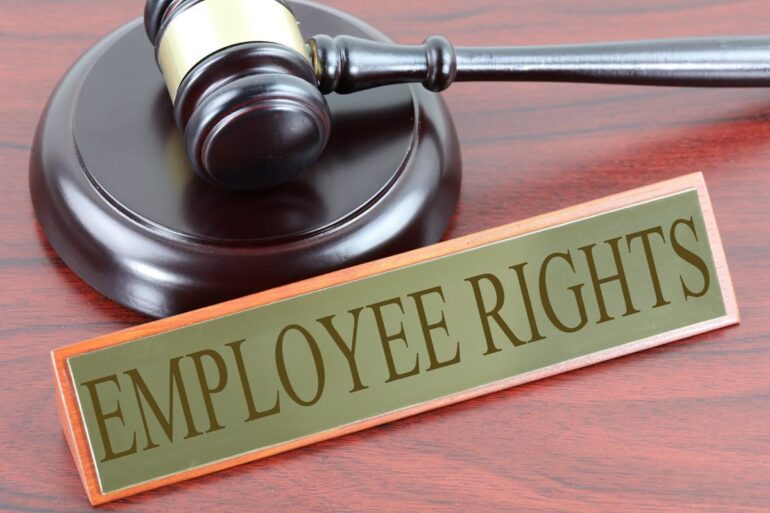In this article, we look into the dynamics of collective bargaining and the significance of legal representation in defending workers’ rights, highlighting how these combined efforts can lead to meaningful change in the workplace.
In the ongoing struggle for workers’ rights, the intersection of collective bargaining and legal representation can be a formidable force. Skilled legal firms like Schwartzapfel Lawyers recognize the crucial role that collective bargaining and legal representation play in advocating for fair treatment and better working conditions for workers across industries.
What Is Collective Bargaining?

Collective bargaining is a fundamental process in the labor movement and a cornerstone of worker empowerment and advocacy. Essentially, collective bargaining involves negotiations between employers and labor unions or representatives to establish terms and conditions of employment. These negotiations typically cover a range of issues, including wages, benefits, hours of work, and workplace safety.
The primary objective of collective bargaining is to secure favorable agreements that benefit workers and address their concerns. When workers engage in collective bargaining, they gain strength in numbers and leverage their collective power to negotiate with employers on equal footing. Through this process, workers can advocate for fair wages, improved benefits, and better working conditions, ultimately striving to achieve greater economic security and social justice in the workplace.
Collective bargaining is governed by labor laws and regulations, which outline the rights and obligations of both employers and workers during the negotiation process. These laws often provide protections for workers engaging in collective bargaining activities, including safeguards against unfair labor practices and discrimination.
Overall, collective bargaining empowers workers to assert their rights and interests in the workplace, fostering a more equitable and collaborative relationship between labor and management.
How Can Lawyers Protect Workers’ Rights?

Legal representation plays a critical role in safeguarding workers’ rights and ensuring that labor laws are upheld in the workplace. Legal professionals with experience in employment law provide essential guidance and representation to workers facing challenges like discrimination, harassment, wrongful termination, and wage theft.
One of legal teams’ primary functions is to educate workers about their rights under labor laws and help them understand their legal options when those rights are violated. By empowering workers with knowledge and information, skilled legal professionals help them assert their rights confidently and take appropriate action when necessary.
What’s more, legal representation is instrumental in holding employers accountable for labor law violations and advocating for fair treatment and just compensation for workers. Through legal advocacy, workers can seek redress for grievances, pursue remedies for unlawful conduct, and seek justice in cases of workplace injustice.
In addition to representing individual workers, legal professionals often collaborate with labor unions and advocacy groups to address systemic issues affecting workers’ rights on a broader scale.
The Intersection of Collective Bargaining and Legal Representation
While collective bargaining focuses on negotiating labor agreements and terms of employment, legal representation complements these efforts by providing guidance, advocacy, and enforcement of labor laws.
Legal professionals often work closely with labor unions and workers’ organizations to support collective bargaining initiatives and ensure that negotiated agreements comply with applicable laws and regulations. They play a crucial role in drafting and interpreting labor contracts, resolving disputes, and enforcing contractual rights on behalf of workers.
Legal representation also strengthens the bargaining power of workers by providing legal recourse in cases of employer misconduct or violations of labor laws. Lawyers help workers understand complex legal procedures, gather evidence, and present their cases effectively in arbitration hearings, mediation sessions, or court proceedings.
Aligning collective bargaining with legal representation can help workers maximize their ability to protect their rights, achieve fair treatment in the workplace, and secure better wages, benefits, and working conditions. Together, collective action and legal advocacy empower workers to confront injustice, challenge systemic inequalities, and build a more equitable and inclusive labor environment.
What Are the Benefits of Collective Bargaining for Workers?

Collective bargaining and legal representation offer numerous benefits to workers, empowering them to advocate for their rights and improve their working conditions. Through collective bargaining, workers can negotiate fair wages, better benefits, and safer working environments.
Legal representation provides essential guidance and support to workers facing workplace disputes, ensuring that their rights are protected and upheld under the law. Collective bargaining and legal representation also enable workers to address systemic issues of inequality and discrimination, fostering a more equitable and inclusive workplace.
Empowering Workers: The Collective Force of Bargaining and Representation
Collective bargaining and legal representation are formidable forces in the ongoing pursuit of workplace justice. By leveraging aging collective action and legal advocacy, workers can assert their rights, secure fair treatment, and advance toward a more equitable and inclusive workplace.
